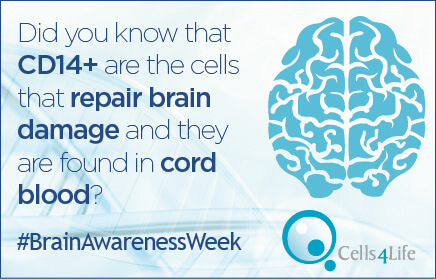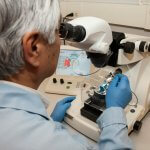What is not so well knows is that umbilical cord blood contains a rare type of cell known as a CD14+. These cells can cross the blood-brain barrier and play a key role in innovative treatments for a range of neurological conditions including:
Saving stem cells with cord blood banking
Surprisingly, most umbilical cord blood is routinely discarded as clinical waste after birth rather than stored as the life-saving precious resource that it is. It is possible to store cord blood, and cord tissue, in either private or public banks:
Public banking
The NHS offers a donation service in just six hospitals where banked cord blood is limited to the treatment of blood disorders such as Leukaemia.
Family banking
Parents can pay to store their baby’s stem cells privately. The stored cells can then be used to treat the child or a sibling, not just for blood disorders, but also for regenerative therapies and a range of clinical trials. In 2015, it emerged that 82% of privately banked cord blood units released for autologous use, were for the treatment of neurological conditions.(1)
Family banking gives access to regenerative medicine
Cord blood and brain injury
CD14+ cells have been identified as crucial in repairing damage to the brain and those derived from the cord blood demonstrate a greater effect than CD14+ from other sources.(2)
- https://www.ncbi.nlm.nih.gov/pubmed/26030051
- http://www.celltherapyjournal.org/article/S1465-3249(15)00587-3/pdf
FIND OUT MORE, REQUEST YOUR WELCOME PACK TODAY
All you need to know to make an informed decision.
Provide your contact details to request:
– Complete Welcome Pack and Parent’s Guide
– Information via email
– Contact from our specialist advisors








